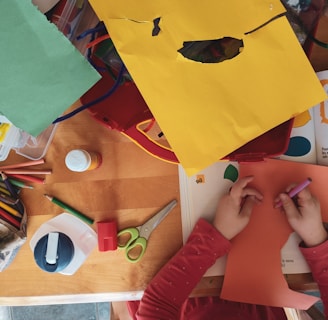
Creating a Positive Learning Environment at Home
SNIPPETS
Dr Praful Gowda
11/13/20241 min read
As a pediatrician, I often encounter parents who are eager to provide the best possible environment for their children's development. While school plays a crucial role, the home environment is equally important in shaping a child's intellectual and emotional growth.
Here are some practical tips to create a positive learning environment at home:
1. Establish a Dedicated Study Space:
A Quiet Corner: Designate a specific area for study, free from distractions like television or noisy siblings.
Personalized Touch: Decorate the space with your child's favorite toys, books, or artwork to make it inviting.
Essential Tools: Ensure easy access to stationery, books, and other necessary study materials.
2. Set a Consistent Routine:
Structured Schedule: Create a daily routine that includes fixed times for study, play, and relaxation.
Balanced Lifestyle: Prioritize a healthy mix of academic activities, physical exercise, and creative pursuits.
Flexible Approach: While routine is important, be flexible to accommodate unexpected events or your child's mood swings.
3. Encourage Curiosity and Exploration:
Question Everything: Encourage your child to ask questions and seek answers.
Hands-on Learning: Engage in activities that stimulate curiosity, such as cooking, gardening, or building models.
Visit Educational Places: Explore museums, libraries, and science centers to broaden your child's horizons.
4. Foster a Love for Reading:
Read Aloud: Spend quality time reading books together, making it a fun and enjoyable experience.
Diverse Choices: Offer a variety of books, from storybooks to educational texts, to cater to different interests.
Create a Cozy Reading Nook: Designate a comfortable space for reading, filled with soft cushions and warm lighting.
5. Positive Reinforcement and Encouragement:
Appreciation and Praise: Acknowledge your child's efforts and achievements, no matter how small.
Avoid Comparisons: Focus on individual progress rather than comparing your child to others.
Celebrate Milestones: Mark significant achievements with rewards or special outings.
Remember, a positive learning environment is not just about academics. It's about nurturing your child's overall development, including emotional, social, and physical well-being. By following these tips and creating a supportive atmosphere, you can empower your child to reach their full potential.
As Dr. Maria Montessori wisely said, "The greatest sign of success for a teacher... is to be able to say, 'The children are now working as if I did not exist."


